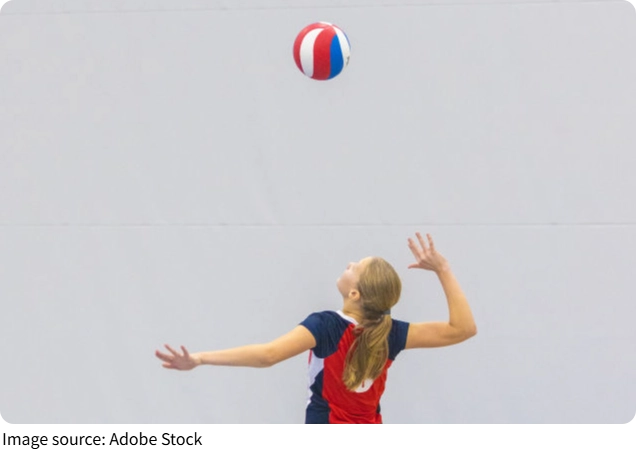Stronger Through Sports

In today's fast-paced, screen-filled world, children and teens face more sedentary habits than ever before.
That's where sports can make a meaningful difference. Whether it's soccer in the park, swimming lessons, or joining the school basketball team, playing sports provides far more than just entertainment—it plays a crucial role in physical development, mental health, and social growth.
Are you wondering whether encouraging your child to join a sports team is worth the effort? This article will show you exactly how sports can positively shape a young person's life.
Physical Health Benefits
One of the most obvious and scientifically supported advantages of playing sports is improved physical health. Regular movement helps young bodies build stronger muscles, develop cardiovascular endurance, and maintain healthy body weight. According to the Centers for Disease Control and Prevention (CDC), children who engage in regular physical activity have lower risks of developing chronic issues such as high blood pressure and metabolic disorders later in life.
In particular, sports:
• Enhance motor skills like coordination and balance
• Improve flexibility and muscle strength
• Boost overall energy and reduce fatigue
• Contribute to strong immune system development
When kids develop a love for movement early, they're more likely to stay active into adulthood.
Mental and Emotional Growth
Physical benefits aside, sports also provide a valuable outlet for emotional expression and mental resilience. Participating in sports teaches children and teens to deal with success and failure, frustration and achievement.
Studies from the American Academy of Pediatrics show that children who participate in organized sports report:
• Lower levels of anxiety and depression
• Improved mood and emotional regulation
• Higher self-esteem and confidence
The discipline of practicing regularly, staying committed to a team, and setting goals also helps develop a growth mindset—essential for handling life's challenges.
Academic Improvement
Contrary to the belief that sports take time away from schoolwork, research suggests the opposite. Children and teens who play sports often perform better academically than their peers. A study from the Journal of School Health found a positive correlation between physical activity and academic achievement, especially in areas like mathematics and reading comprehension.
Why does this happen?
• Sports improve focus and concentration
• Regular exercise increases blood flow to the brain, enhancing memory
• Discipline learned from sports translates to better study habits
So, encouraging sports doesn't mean sacrificing education—it can actually enhance it.
Social Skills and Teamwork
Being part of a sports team or club naturally promotes interaction with others, building essential social skills. Children learn how to collaborate, resolve conflicts, communicate effectively, and support each other. These interpersonal experiences are foundational to healthy relationships in school and later in the workplace.
For introverted children, sports can provide a safe space to connect with others through shared goals and teamwork. Leadership opportunities often arise in team settings, helping kids discover and refine their voice.
Healthy Routines and Habits
When children and teens play sports regularly, they tend to develop structured routines. Practice times, game days, sleep schedules, and healthy eating habits all become part of their weekly rhythm. These healthy patterns reduce time spent on screens and help maintain a positive life balance.
Athletes are also more likely to avoid risky behaviors. A review from the National Institutes of Health (NIH) revealed that students who are involved in sports are less likely to engage in unhealthy habits, unhealthy eating, or disruptive behavior at school.
Building Resilience and Grit
Life isn't always about winning, and sports teach that in a powerful way. Losing a match or being benched can be disappointing, but it's also a key opportunity to learn resilience. Young athletes gain grit, patience, and persistence—qualities that benefit them far beyond the playing field.
Sports also help young people cope with pressure. Whether it's performing in front of an audience or managing stress during competition, these situations prepare children to stay calm and focused in all areas of life.

Parental Support Matters
Parents play a huge role in how children perceive sports. Supporting a child's efforts, celebrating progress rather than just wins, and encouraging balance over burnout are key. Experts from the American Psychological Association (APA) emphasize that positive parental involvement increases enjoyment and long-term commitment to physical activity.
Even simple actions—like watching games, providing transportation, or offering emotional encouragement—can help kids feel seen and valued.
Choosing the Right Sport
Every child is unique, and so are their athletic interests. While some kids may thrive in team sports like volleyball or football, others may prefer individual pursuits such as tennis, or gymnastics.
The goal is to find a sport that matches your child's personality and abilities, while ensuring the environment remains safe, inclusive, and age-appropriate. Let your child try different activities and see what sparks joy and commitment.
Overcoming Common Challenges
Time management, fear of competition, or a lack of local resources can make it difficult for some families to stay involved in youth sports. The solution isn't always more intensity—it can also be flexibility. Even casual, unstructured play in the backyard or at the park can provide many of the same benefits.
Financial constraints? Community centers, afterschool programs, and school-based clubs often offer low-cost or free options to get kids moving.
Final Thoughts: Start Young, Grow Strong
Playing sports helps children and teens thrive in nearly every aspect of life—from physical health and academic performance to emotional balance and lifelong friendships. It lays the foundation for a strong, balanced, and confident future.
Do your kids already play a sport, or are you thinking about introducing one? Share your thoughts or personal stories—we'd love to hear how sports have shaped your child's life!


